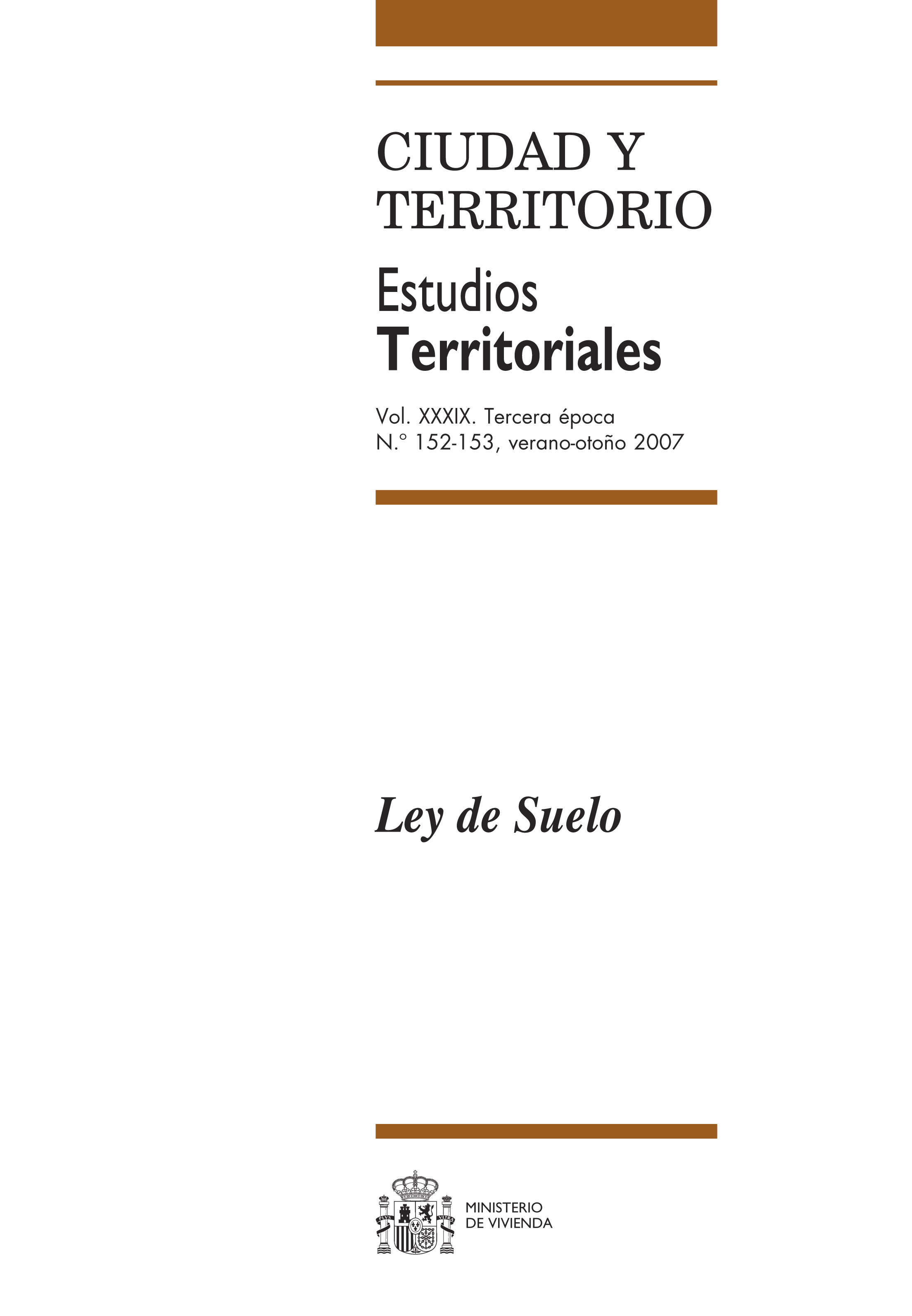Compulsory Purchase. Sale, or Compulsory Substitution/Compensation. Government’s Real Estate Responsibilities
Keywords:
Especulación del suelo, mercado inmobiliario, valoración del sueloAbstract
The author here explains the nature of two of the sections of the New Law, namely the Fourth which covers
“compulsory purchase and patrimonial responsibilities” and the first chapter of the Fifth which defines
“compulsory sale and substitution”. The Fourth is said here to assure the private citizen’s property rights
as against town and country panning initiatives whilst the other aims to guarantee the fulfilling of legal requisites
and to so sets out the penalties accruing on their not being met. The latter is here felt to offer little
that is novel but is upon those few that there are the author has centred his paper. As to compulsory purchase,
these novelties in question are most marked when it comes to rights as to a reversion on such decisions
and a new figure governing a re-estimate of ground value subsequent to any modifying of the purpose to which
any land in question can be put according to its territorial administration definition. There is also new regulation
of the grounds for compulsory purchase for cases in which obligations have not been met and these
are said to but continue the doctrine established by the legislation of 1992.
Downloads
Downloads
Published
How to Cite
Issue
Section
License
Copyright (c) 2007 Gerardo Roger Fernández Fernández

This work is licensed under a Creative Commons Attribution-NonCommercial-NoDerivatives 4.0 International License.
Considering the provisions of the current legislation on Intellectual Property, and in accordance with them, all authors publishing in CyTET give -in a non-exclusive way and without time limit- to the Ministry of Transport, Mobility and Urban Agenda the rights to disseminate, reproduce, communicate and distribute in any current or future format, on paper or electronic, the original or derived version of their work under a Creative Commons Attribution-NonCommercial-NoDerivative 4.0 license International (CC BY-NC-ND 4.0), as well as to include or assign to third parties the inclusion of its content in national and international indexes, repositories and databases, with reference and recognition in any case of its authorship.
In addition, when sending the work, the author(s) declares that it is an original work in which the sources that have been used are recognized, committing to respect the scientific evidence, to no longer modify the original data and to verify or refute its hypothesis. Author(s) also declare that the essential content of the work has not been previously published nor will it be published in any other publication while it is under evaluation by CyTET; and that it has not been simultaneously sent to another journal.
Authors must sign a Transfer of Rights Form, which will be sent to them from the CyTET Secretariat once the article is accepted for publication.
With the aim of promoting the dissemination of knowledge, CyTET joins the Open Journal Access (OA) movement and delivers all of its content to various national and international indexes, repositories and databases under this protocol; therefore, the submission of a work to be published in the journal presupposes the explicit acceptance by the author of this distribution method.
Authors are encouraged to reproduce and host their work published in CyTET in institutional repositories, web pages, etc. with the intention of contributing to the improvement of the transfer of knowledge and the citation of said works.








 Enlace a CyTET en Linkedin
Enlace a CyTET en Linkedin